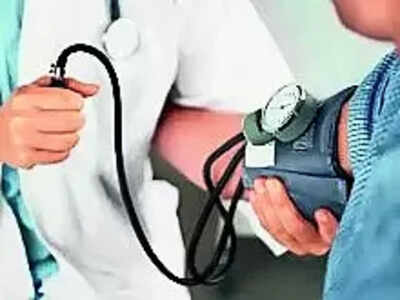ARTICLE AD BOX

Periodic screening is an essential part of healthcare in a world where health policies are more centered around disease prevention and early detection than treatment. In fact, modern-day healthcare has markedly shifted from reactive approaches to preventive strategies.What is screeningA health screening is a medical test performed on an asymptomatic person or a group of people to detect the occurrence of a disease or assess the chances of a disease outbreak. The purpose of screening is to identify people who are at the risk of a health problem and provide them early treatment or intervention urgently. This will produce better treatment outcomes for the affected people.Purpose of screeningThe main objectives of the screening are to reduce mortality by early detection of disease and early treatment, avoid occurrence of disease by treating its antecedents, and reduce the severity of a condition by identifying risk factors early.However, there is a subtle distinction between screening and early diagnosis. Screening is done on people who do not have any symptom but early diagnosis is performed on people with symptoms. Screening is very useful for early diagnosis of diseases such as cancer, stroke, chronic kidney disease, hepatitis, fatty liver, hyperthyroidism and hypothyroidism, and heart disease.If remains unnoticed for a longer period, many mild or treatable diseases like hypertension and diabetes may lead to severe health complications.
Thus, regular health screening is an indispensable process that can spot early warning signs and start timely medical interventions.How effective is screening?When someone has a family history of serious medical conditions such as genetic disorders, cancer or cardiac problems, regular medical checkups are unavoidable. This approach ensures that people remain well informed about even the slightest changes happening in their body.
For example, periodic tests for blood pressure, sugar, cholesterol, liver function, and kidney function will help avert chronic disease conditions like stroke, diabetes, coronary artery disease, fatty lever or cirrhosis, and chronic kidney disease.
In the absence of regular checkups, even an apparently healthy person may succumb to serious health risks as several factors like rising levels of environmental pollution, changing food habits, and rapid lifestyle changes are silently contributing to health hazards.How AI works?Normally, serious diseases develop and progress slowly in a human body and the progression is so hard to detect without technological support. Today, apart from the conventional medical imaging technology, the artificial intelligence (AI)-based systems have made the prediction, diagnosis and treatment of major diseases more effective, sound, and accurate.The advent of AI and its increased application in medical diagnostics have revolutionized the field with the AI tools improving the accuracy and speed of disease detection at a lower cost compared to traditional diagnostic methods.
AI-driven systems have the capacity to analyse large volumes of patient data, including medical history, genetic information, lifestyle elements, and real-time biometrics. By identifying patterns and correlations in this data, AI can detect the occurrence of a disease or dysfunction much before clinical symptoms come out.Moreover, AI can reduce the risk of human errors and deliver diagnostic results with enhanced precision.
By using machine learning (ML) techniques, such systems can identify genetic disorders, tumours, abnormal growths, and other physiological changes. Further, the ability of AI algorithms to analyse complex datasets is improving treatment outcomes and enriching the overall healthcare experiences.How does it benefitRegular screening can deliver significant results such as early intervention, lower treatment cost, positive treatment outcomes, faster recovery, and reduction in mortality rate.
It also provides patients with updated and accurate medical information that helps them make an informed decision about what should be the next course of treatment. Moreover, early detection presents additional benefits like minimizing the exposure to toxic or advanced treatments such as chemotherapy (for cancer patients) and seeking options of less invasive and cost-effective techniques.
This approach also brings a big relief to not only the patients but also their families by helping them avoid huge treatment cost and further deterioration in health conditions.Thus, periodic health screenings and early interventions are very useful in rescuing people from serious health risks and huge financial burden, and helping them lead a healthy living. Now, technology has made the screening and detection processes much simpler and comprehensive. More importantly, such practices help patients win back their normal life faster, lead a stress-free life, and pursue career goals without getting distracted by health concerns.Authored by: Dr.Bilal Thangal T M, Medical Lead NURA
Cardio Medithon 3 | Managing Heart Disease



.png)
.png)
.png)
















 1 day ago
4
1 day ago
4









 English (US) ·
English (US) ·